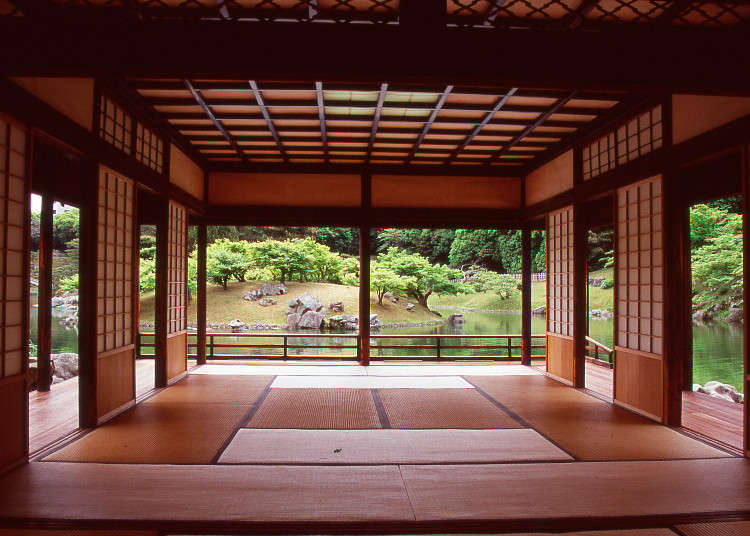
A former castle town that was especially important during Japan's feudal period, Takamatsu is the largest city on Shikoku island. It is an excellent base from which to explore the islands of the Seto Inland Sea.
1. Ritsurin Garden
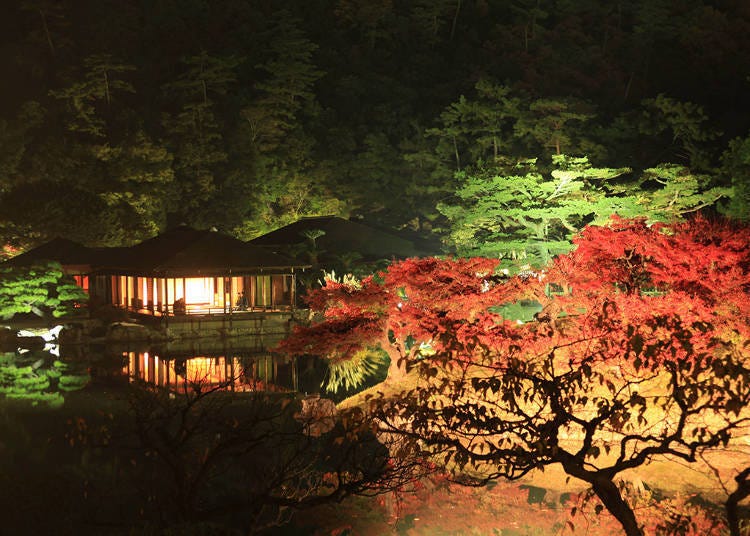
Ritsurin Garden was landscaped for Edo Era daimyo (feudal lords) over the course of a hundred years, reaching its present design in 1745.
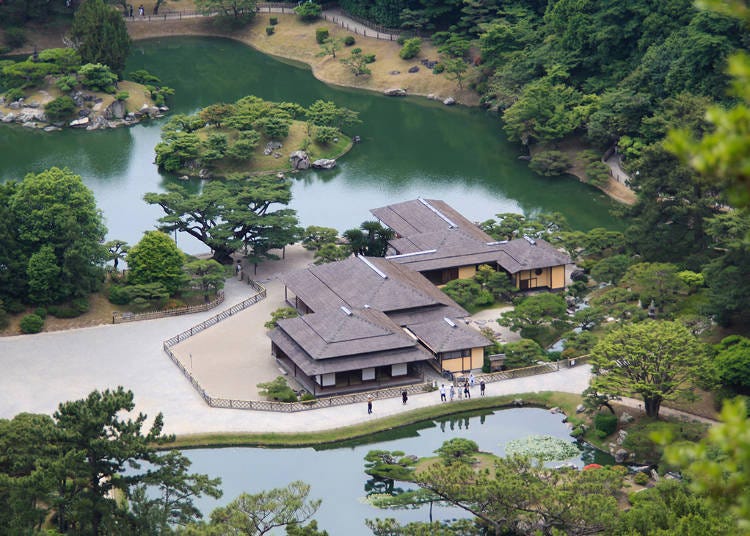
Designated a Special Place of Scenic Beauty, this spacious garden features six ponds and thirteen landscaped hills. At Ritsurin Garden, it is said the scenery changes with every step, a characteristic called "ippo ikkei."
Relax with a bowl of matcha (powdered green tea) at Kikugetsu-tei teahouse while you take in the picturesque landscape, and afterward marvel at the intricate beauty of Sanuki folk crafts on display at the Sanuki Mingeikan Folk Craft Museum. You can also enjoy a ride on a Japanese boat.

-
Ritsurin Garden栗林公園
- Address 20-16, 1-chome, Kuribayashi-cho, Takamatsu City, Kagawa Prefecture 760-0073
2. Mamehana
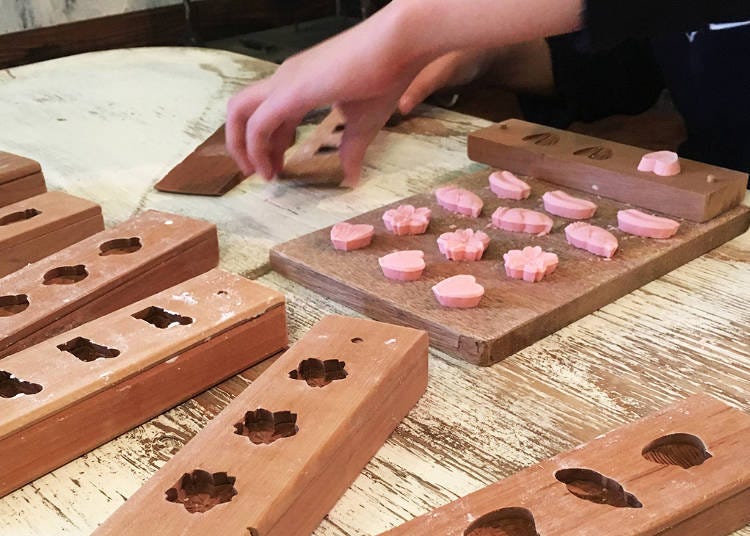
At Mamehana, you can learn the traditional Sanuki confectionery-making process hands-on, using wooden molds to create the unique shapes of Japanese confectionery called Wasanbon.

Carving the wooden molds, which usually take the form of natural objects such as a maple leaf, is itself a traditional craft – the technique of using wooden molds to make the sweets was developed in the Edo period, giving it a history of more than 200 years.
Currently, just one artisan is producing wooden molds in Shikoku, Mr. Yoshihiro Ichihara of Takamatsu City. So at the end of the workshop, you will not only have beautiful wagashi (Japanese confectionery) to take home and eat but also insight into this traditional industry of Kagawa.
-
Mamehana豆花
- Address 1-chome-9-13 Hanazonocho, Takamatsu, Kagawa 760-0072
3. Yashima
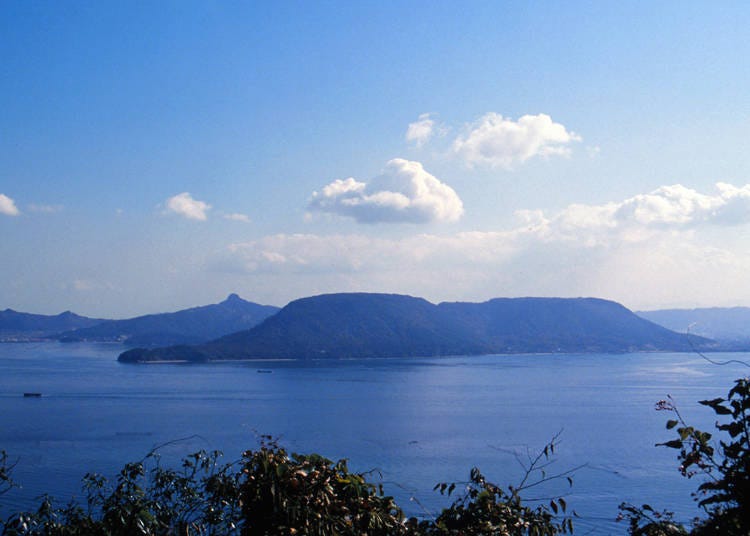
Yashima is one of the sites where the Genji and the Heike fought each other during the Genpei War almost a thousand years ago.

Funa-kakushi, a cove where the Heike hid their warships, and Inoriiwa, where archers prayed for their arrows to fly true, are just two of many sites at Dannoura, where visitors can feel a connection with the history of ancient Japan.
From a roof-like lava plateau, you can take in a panoramic view of the Seto Inland Sea as it blends in with the islands and cityscape of Takamatsu. Yashimaji Temple is located at the summit, and is No. 84 of the 88 temples of the Shikoku Pilgrimage.

-
Yashima屋島
- Address Yashima Higashimachi, Takamatsu, Kagawa 761-0111
4. Bonsai Cultivation area
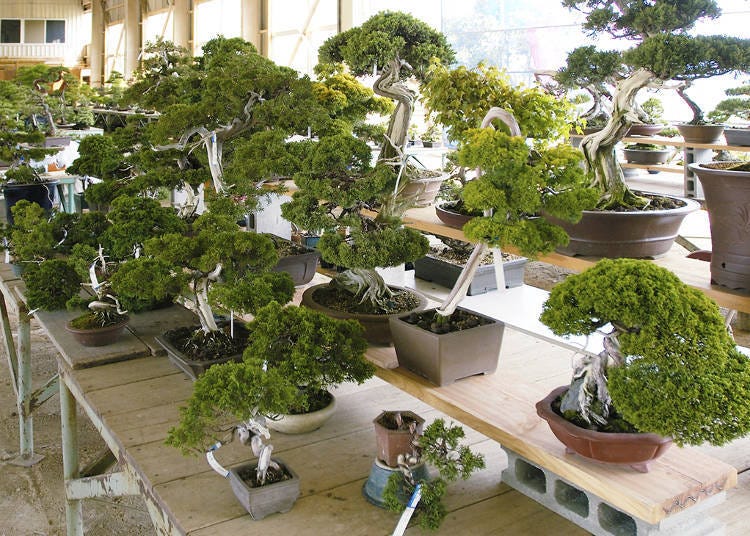
Bonsai is a traditional Japanese art rooted in kindness toward living trees, and expressed in a meticulous aesthetic sense.

The western part of Takamatsu City in Kagawa (around the Kinashi and Kokubunji areas) is Japan’s top bonsai pine tree producing area, accounting for 80 percent of the nation's share.
Pine trees cultivated in well-drained, sandy loams have a reputation for the beauty of their shapes and their durability, because their roots are less likely to rot.
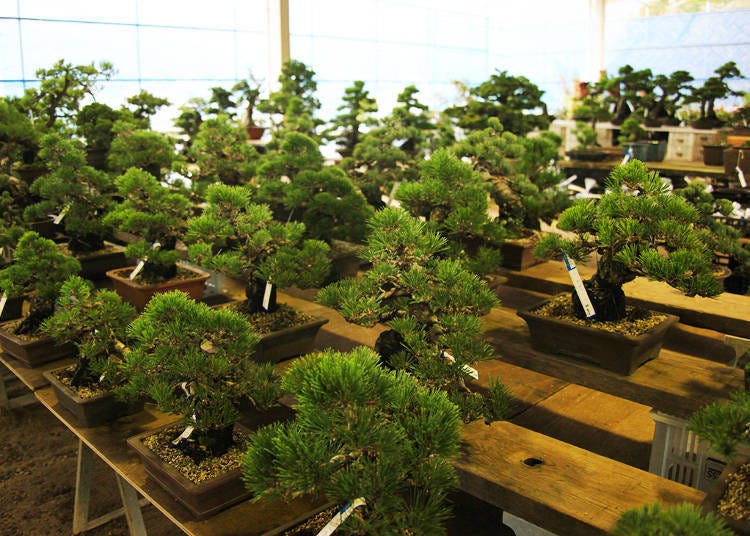
-
Kinashi Bonsai Centre鬼無植木盆栽センター
- Address 333-1 Oninashi-cho, Takamatsu City, Kagawa Prefecture, 761-8025
5. Kotohira-gu Shrine
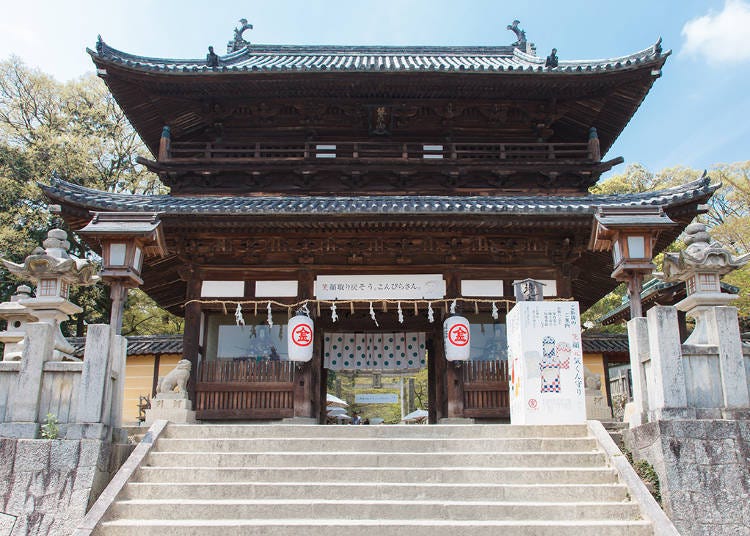
Commonly known as Konpira-san, Kotohira-gu is the head shrine of "Kotohira" or "Konpira" shrines in Japan and enshrines a deity of the sea.
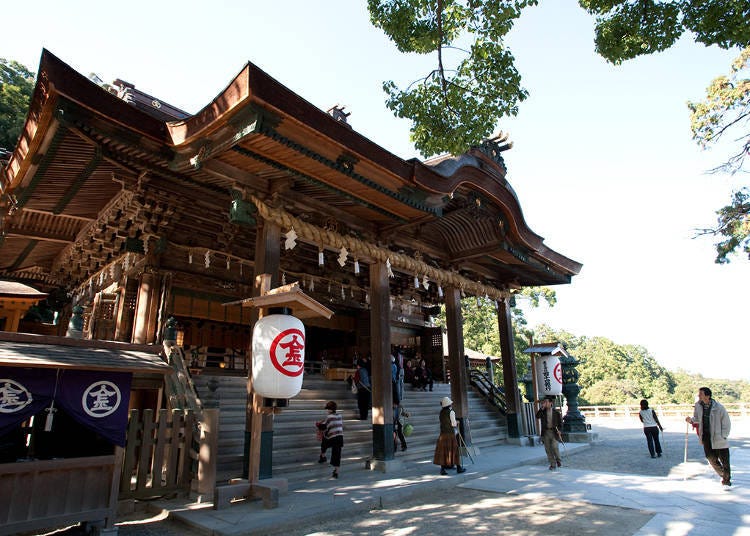
A total of 1,368 steps lead up to the shrine, with the Main Shrine located halfway up. Be sure not to miss the wonderful paintings on the ceiling of this shrine. On certain festival days, you can see the priests and shrine maidens dancing in traditional clothes.
Visitors not thrilled by the steep and lengthy ascent will be happy to know that a palanquin-type basket carried by two strong men can be hired to take you up the first 365 stone steps!
Called a kago, this form of transportation can't be experienced anywhere else in Japan, so take advantage of it to rest your feet a while and pretend you are back in the Edo period!

-
Kotohira-gu Shrine金刀比羅宮
- Address 892-1, Kotohira, Nakatado District, Kagawa 766-8501
6. Nakano Udon School TAKAMATSU
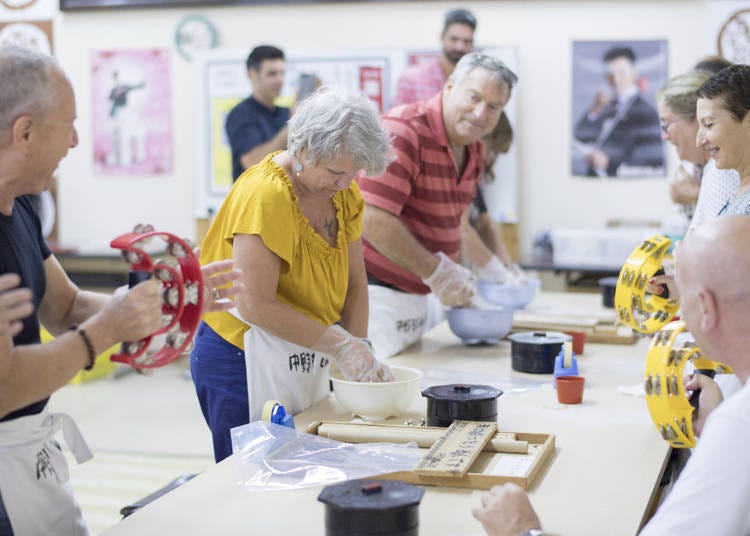
Try your hand at making the famous Sanuki udon noodles yourself at a Nakano Udon School, located at the foot of Takamatsu City!

In this cooking class, you can learn the udon-making process in detail, from kneading the dough using the "foot kneading" technique to rolling the dough with a special rolling pin and cutting the dough into noodles.
At the end, you can cook and eat your own udon, together with dishes such as tempura or chirashizushi. Taught by an experienced instructor, this is the full Sanuku udon experience!
-
Nakano Udon School TAKAMATSU中野うどん学校 高松校
- Address 8 Nariai-cho, Takamatsu City, Kagawa Prefecture, 761-8081
7. Wasanbon School Nishikiya (Traditional Candy Shop)
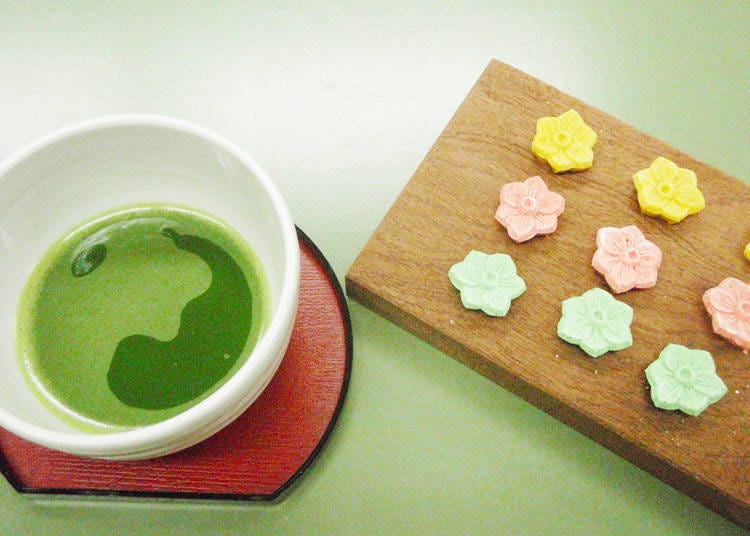
Wasanbon is a type of sugar traditionally produced in the eastern part of Shikoku, mainly in Kagawa and Tokushima Prefecture.

The characteristics of Wasanbon are a unique flavor and fine particles that melt in your mouth. The name "Wasanbon" derives from the confectionary process, where sugar is polished three (san) times on a tray (on).
Making your own Wasanbon confectionary is a unique experience, and half-dried Wasanbon has a superb flavor that can only be enjoyed on the spot by class participants.
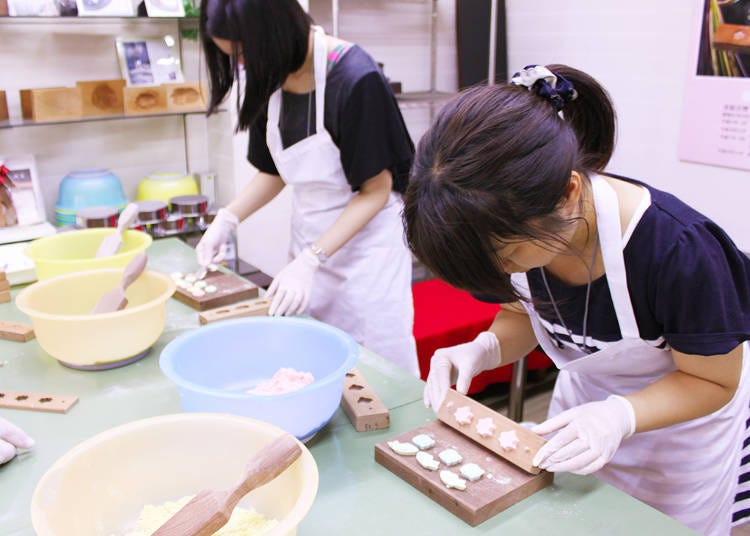
-
Nishikiyaにしきや 本店
- Address Kotohira-cho, Nakatado-gun, Kagawa 696 Japan, 766-0001
8. Seto Ohashi Commemorative Park
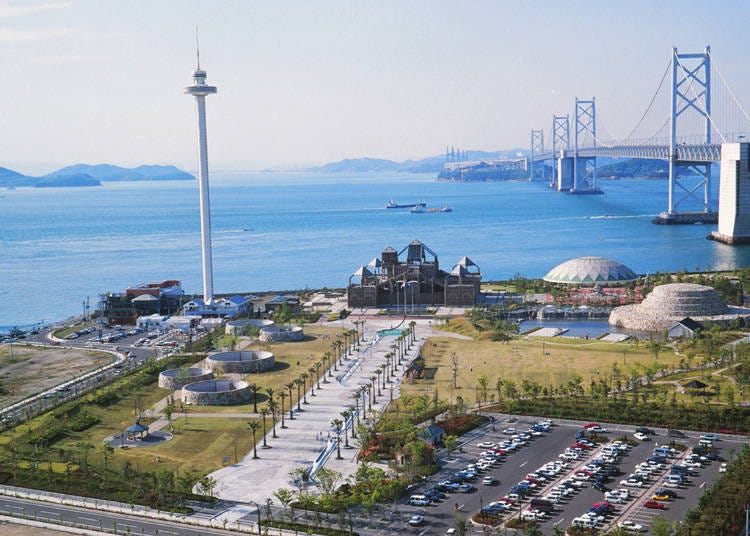
The Seto Ohashi Bridge is one of the world's largest bridges for combined use by automobiles and trains.

This commemorative park includes playground equipment, a fountain that forms the shape of the bridge, sporting fields, and a Target Bird Golf Course. Other attractions include "Onibyobu" (Ogre's Tiered Wall), an eye-catching stone sculpture by world-famous sculptor Masayuki Nagare, and a 50m wide waterfall that features a tunnel you can pass through.
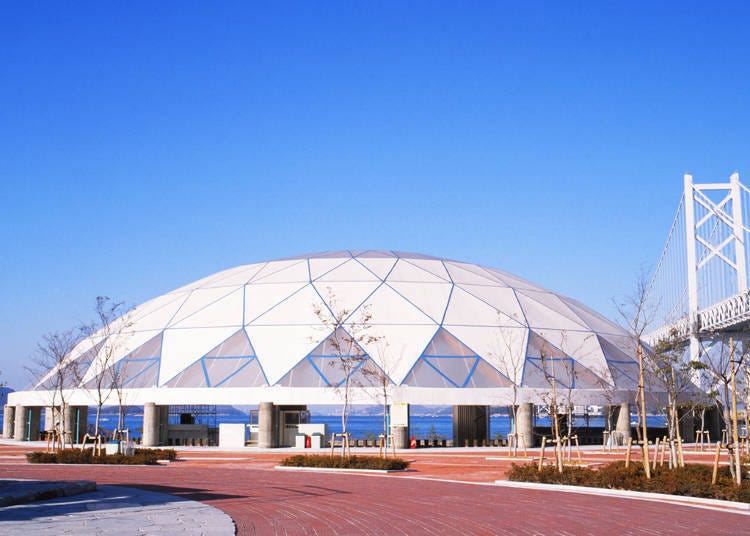
-
Great Seto Bridge Memorial park瀬戸大橋記念公園
- Address 6-13 Bannosumidoricho, Sakaide, Kagawa 762-0065
9. Naoshima
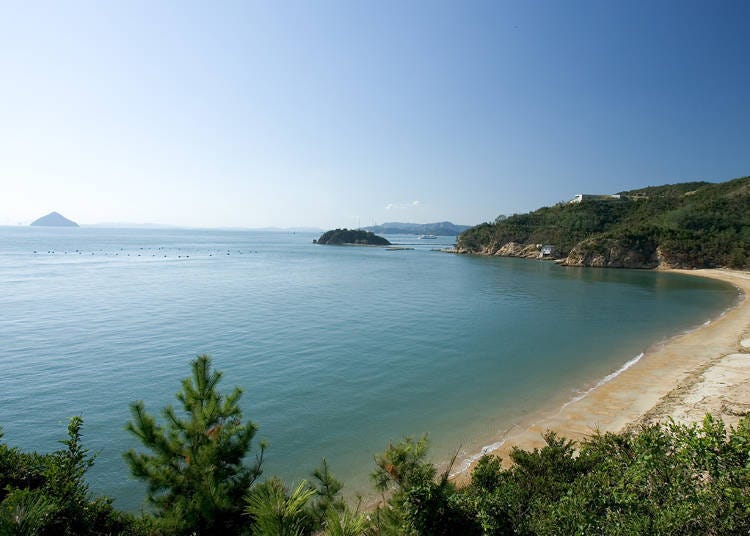
On the island of Naoshima, art is blended into island life.

Yayoi Kusama's “Red Pumpkin,” the symbol of Naoshima, welcomes you to Miyanoura Port after your arrival by ferry, and both Chichu Art Museum and Benesse House Museum were designed by world-famous architect Tadao Ando.
Naoshima is also full of other attractions. This beautiful island is rich in nature and delights visitors all year round. The arrival of spring brings the blooming of island azaleas. In summer you can enjoy swimming and fishing in the sea. There are many restaurants and cafes where you can taste the delicious fish of the Seto Inland Sea.

-
Naoshima Tourism Association直島町観光案内所
- Address 2249-40 Miyanoura, Naoshima, Kagawa District, Kagawa 761-3110
10. Shodoshima
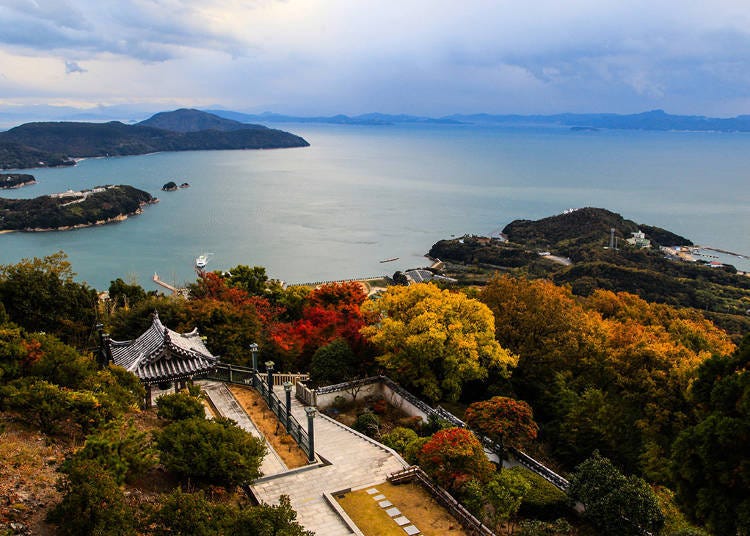
Within Kagawa prefecture, the small island of Shodoshima is replete with a Mediterranean atmosphere.
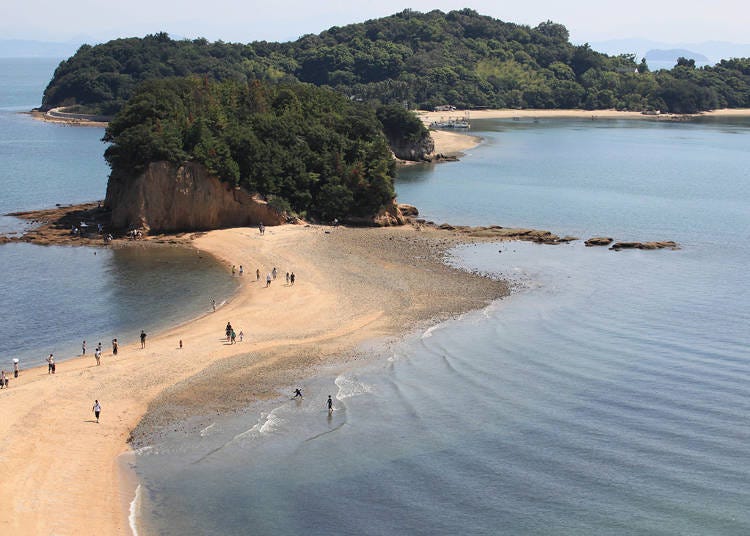
Its Mediterranean-themed sightseeing spots include a Greek windmill and pillared outdoor venue overlooking the sea. Shodoshima is unique too with its many olive farms and shops selling olive snacks, including olive noodles, olive chocolates, olive oil ice cream, and many more.
Along with that, some enthralling scenery is available with a disappearing then reappearing at low tide sandbar called "Angel Road," and the Kankakei Gorge Ropeway, which is often listed as one of the most beautiful gondola tours in Japan. Finally, be sure to take home some Shodoshima soy sauce, which has an enhanced flavor due to the climate.

-
Azushimatonosho Sightseeing Information Center小豆島とのしょう観光協会
- Address Ko, Tonosho, Shozu District, Kagawa 761-4100
11. Slurp up some Sanuki Udon
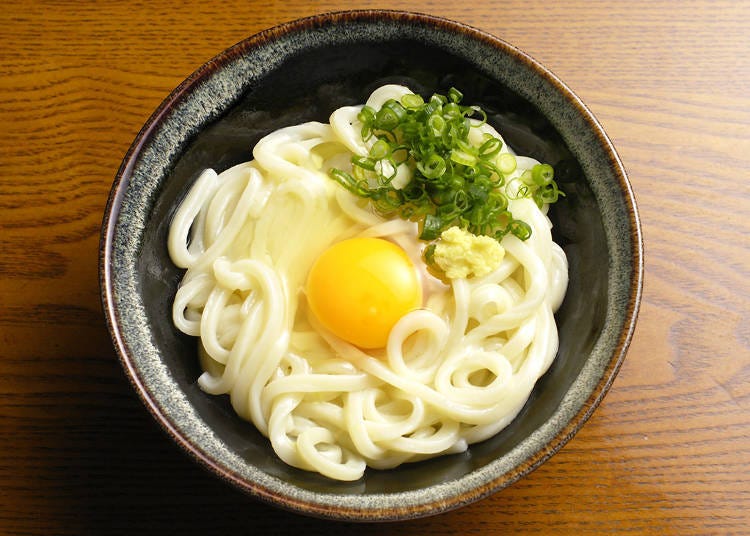
Long a local Kagawa specialty, Sanuki udon is the most famous kind of udon noodles in Japan, but that wasn't always the case – they only achieved nationwide popularity after being picked up by the media in the 1980s.

Now loved by people throughout Japan for its perfect texture, Sanuki udon is served at over 600 restaurants in Kagawa, earning it the nickname "udon prefecture."
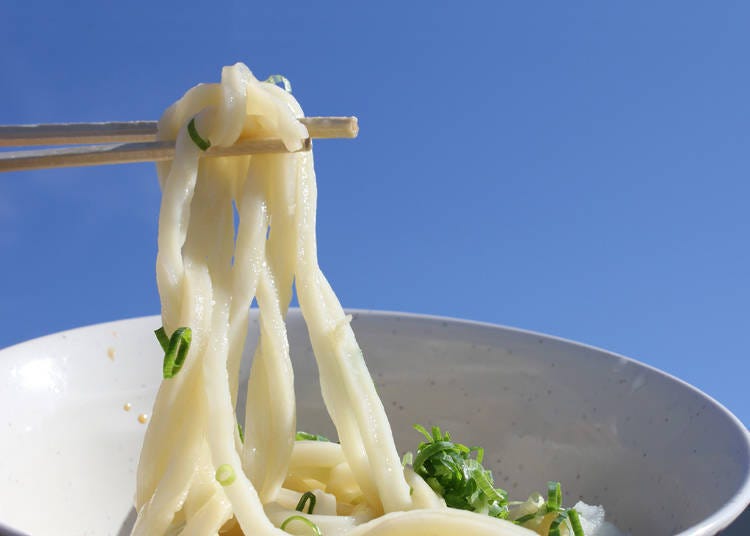
12. Chow down on the local speciality, honetsuki-dori
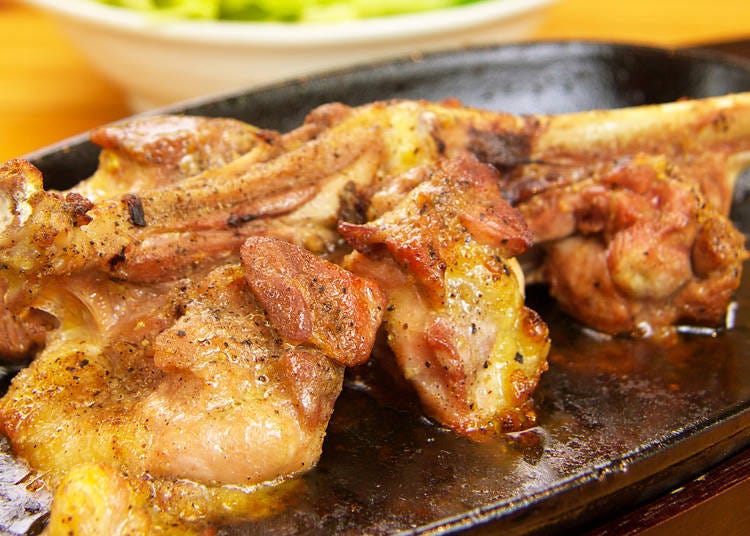
Oven-baked to crispy perfection, honetsuki-dori, or chicken-on-the-bone, is a popular Kagawa specialty that originated from the city of Marugame. Because thighs from mature chickens are used, the meat is packed with an amazing flavor and extra toughness that is a pleasure to bite into.
Chicken-on-the-bone is seasoned with spices such as salt, pepper, and garlic, and it's often served with cabbage that you can dip into the juice that inevitably drips onto the plate. Fans of chicken won't want to leave Kagawa without sinking their teeth into this juicy treat.
13. Don't miss the Sanuki Takamatsu Festival (August 12-14)
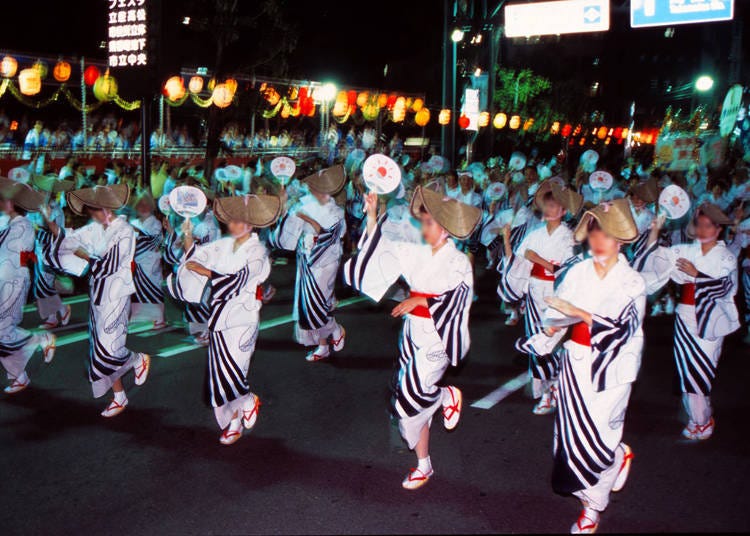
The three-day Sanuki Takamatsu Festival is one of Shikoku's four biggest annual events, held from August 12 to 14 every year.

It wouldn't be a Japanese summer festival without a brilliant fireworks display, and visitors won't be disappointed: On the evening of the middle day, thousands of fireworks illuminate the night sky over the water in front of the business district of Sunport Takamatsu.
The festival's final day features a parade of over 4000 dancers, from children to adults, captivating the crowds with their energy and enthusiasm.
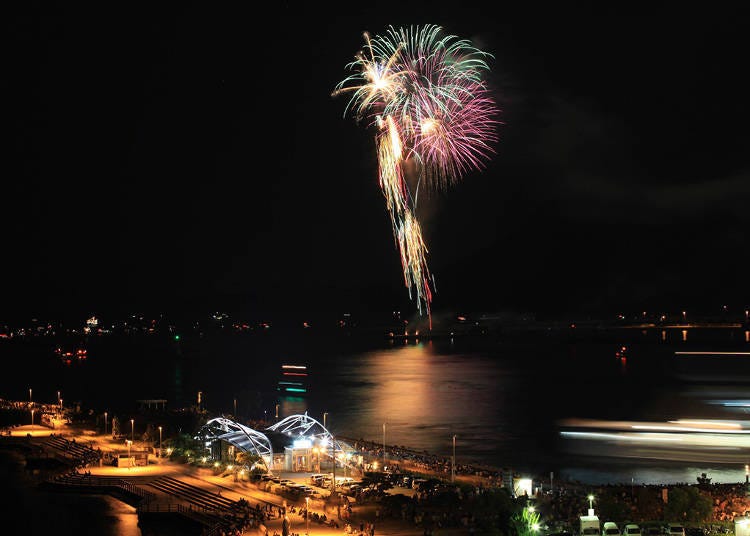
14. Tamamo Park (Ruins of Takamatsu Castle)
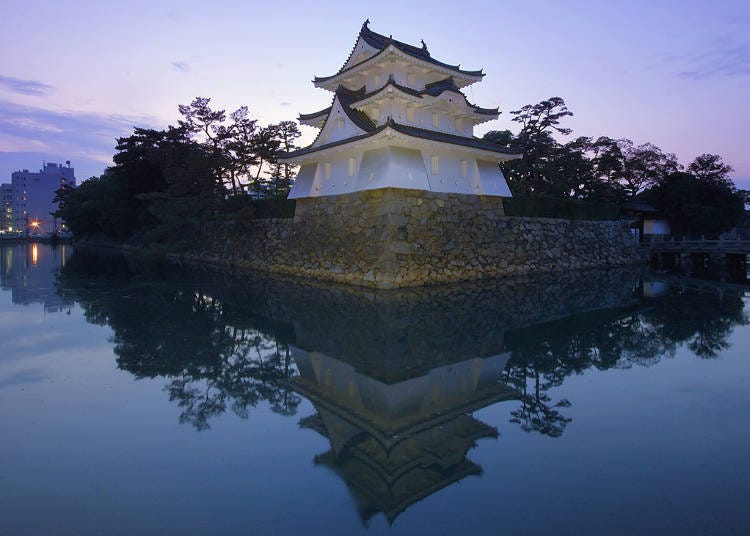
Also called Tamamo Castle, Takamatsu Castle was built in the late 16th century by Chikamasa Ikoma, the first feudal lord of Takamatsu, and is one of only three castles in Japan surrounded by water moats.

Originally the castle had a magnificent view of the surrounding area, with a unique Western-style, three-story tower with five floors on the interior.
Although this main tower has not survived to the present day, its base was reconstructed based on historical photographs and the location of its foundation stones, and the Ushitora Tower, Moon-watch Tower, and Mizutegomon Gate still stand impressively after the passage of centuries.
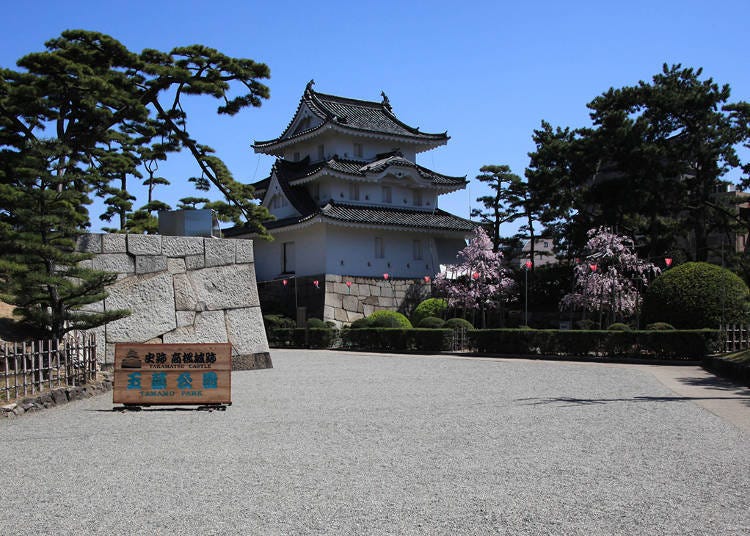
*Prices and options mentioned are subject to change.
*Unless stated otherwise, all prices include tax.
Popular Tours & Activitiess
Recommended places for you
-

Top 3 OSHI MAPs for the Best Matcha and Sweets in Tokyo
by: Guest Contributor
-
Ad

What Makes Japanese Yakiniku So Darn Good? Guide to Cuts, Heat, and Wagyu Know-How
-

To the Holy Land of Kawaii! Odakyu Tama Center Station Is Becoming a Dreamy Sanrio Wonderland
by: Guest Contributor
-

A New Tokyo Landmark Is Coming in 2026, and It's Built for Modern Travelers
by: Guest Contributor
-
Ad

Japan’s Land of Yokai Monsters and Spooky Stories! A Deep Journey to Mysterious San’in (Tottori & Shimane) for Seasoned Travelers
-
Ad

5 Recommended Wagyu Yakiniku Restaurants in Tokyo: Signature Dishes, Premium Beef, and Secret Sauces
-

Tokyo Station: Then and Now
-

Traveling around Tokyo: 10 Things You Didn't Know About Ueno Park!
-

Ikebukuro Station Area Guide: Top 15 Spots When You Escape the Station's Maze!
-

Japanese Expressions: Best Phrases for Complaining in 38+ Daily Situations
by: Nao
-

Ueno Station Area Guide: Fun Ways to Explore Tokyo's Popular Destination (Area Map & Sightseeing Tips)
-

15 Must-Try Sushi Restaurants in Tokyo (+5 Trending Areas to Explore for Foodies)
by: Tiffany YU
- #best ramen tokyo
- #what to buy in ameyoko
- #what to bring to japan
- #new years in tokyo
- #best izakaya shinjuku
- #things to do tokyo
- #japanese nail trends
- #what to do in odaiba
- #onsen tattoo friendly tokyo
- #daiso
- #best sushi ginza
- #japanese convenience store snacks
- #best yakiniku shibuya
- #japanese fashion culture
- #best japanese soft drinks


















